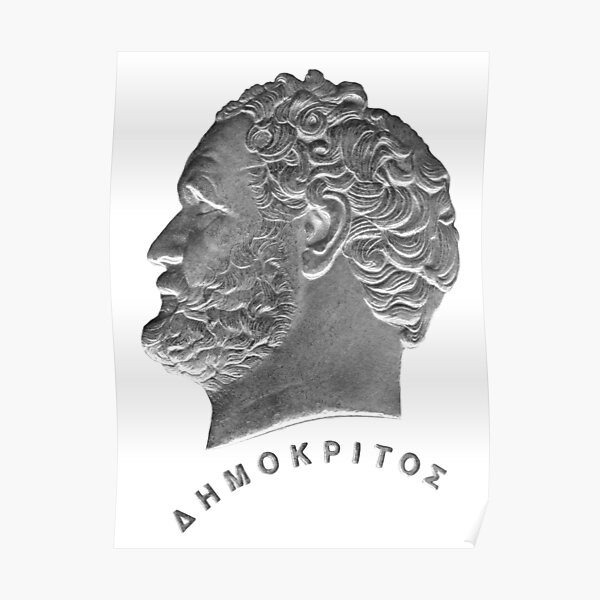Democritus around 350 B.C. had a nice theory of atoms. He said any bit of matter can be divided up to a point. When the particles are small enough, they can be divided no further. He called these "atoms."

Plato hated him, Aristotle ignored him, and he taught Pythagoras.
He came to his atomic theory not how Dalton came to his in the very early 1800's. Democritus thought atoms were unique in shape, and when they stacked together there was empty space between them (an idea both Plato and Aristotle rejected utterly in their philosophies).
Lucretius, describing atomism in his De rerum natura, gives very clear and compelling empirical arguments for the original atomist theory. He observes that any material is subject to irreversible decay. Through time, even hard rocks are slowly worn down by drops of water. Things have the tendency to get mixed up: Mix water with soil and mud will result, seldom disintegrating by itself. Wood decays. However, there are mechanisms in nature and technology to recreate "pure" materials like water, air, and metals. The seed of an oak will grow out into an oak tree, made of similar wood as historical oak trees, the wood of which has already decayed. The conclusion is that many properties of materials must derive from something inside, that will itself never decay, something that stores for eternity the same inherent, indivisible properties. The basic question is: Why has everything in the world not yet decayed, and how can exactly some of the same materials, plants, and animals be recreated again and again? One obvious solution to explain how indivisible properties can be conveyed in a way not easily visible to human senses, is to hypothesize the existence of "atoms". These classical "atoms" are nearer to humans' modern concept of "molecule" than to the atoms of modern science. The other central point of classical atomism is that there must be considerable open space between these "atoms": the void. Lucretius gives reasonable arguments that the void is absolutely necessary to explain how gases and liquids can flow and change shape, while metals can be molded without their basic material properties changing.
Wikipedia - Democritus
The idea of atoms is fundamental to our understanding matter and everything to do with matter. Once atoms are understood it merely forty years before chemistry and technology are in full swing.
So where would we be if Democritus was believed instead of Plato and Aristotle?
Richard Feynmann, renowned Nobel physicist, said this:
If, through some cataclysm, all scientific knowledge were to be lost, and only one sentence could be passed on to the following generations, what single statement would contain the most information in the fewest words? All things are made of atoms -- little particles that move around in perpetual motion, attracting each other when they are a little distance apart, but repelling upon being squeezed into one another. In that one sentence, you will see, there is an enormous amount of information about the world, if just a little imagination and thinking are applied.
James Gleick, Genius: The Life and Science of Richard Feynman